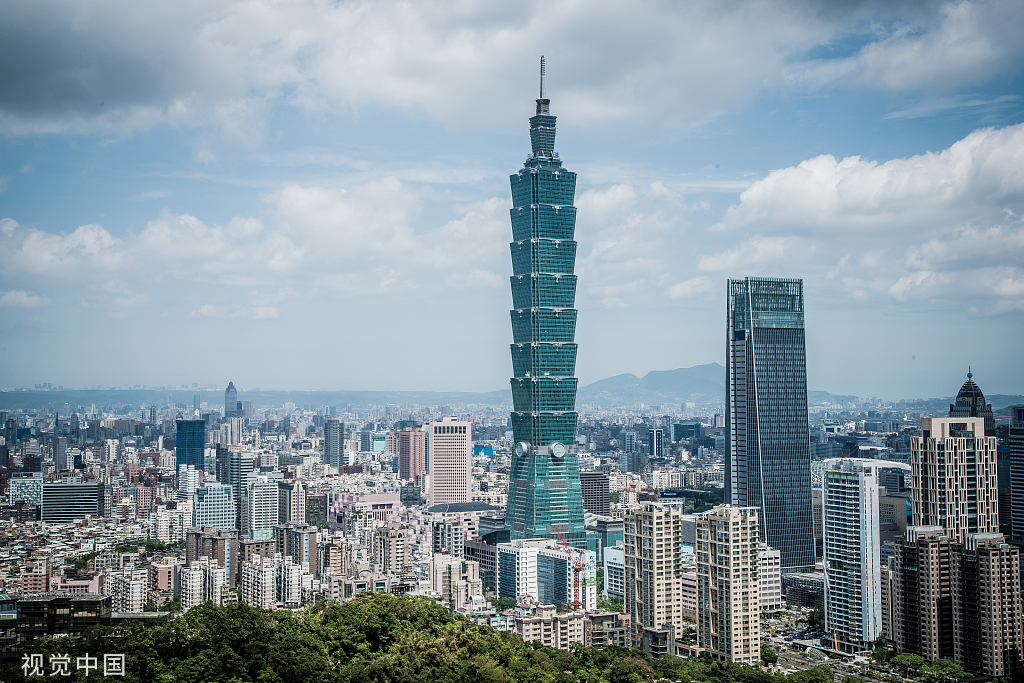DPP's shrinking global space its own making


Having failed, once again, to get an invitation to attend the 76th World Health Assembly, the Taiwan authorities are acting like a child denied a candy and engaging in international publicity stunts. The diminishing international space for Taiwan under the Democratic Progressive Party administration is not the fault of others, but only a consequence of the DPP's own actions.
The DPP's inability to secure an invitation to the WHA, the decision-making body of the World Health Organization, should not be conflated with the rights of Taiwan compatriots to participate in the assembly. The United Nations and the WHO resolved the issue of representation for both sides of the Taiwan Strait and Taiwan residents' relevant privileges a long time ago.
Specifically, UN General Assembly Resolution 2758 in 1971 restored the legitimate seat of the People's Republic of China in the UN, and the WHA adopted Resolution 25.1 in 1972, reaffirming that the PRC is the only lawful representative of China. The Taiwan authorities, since they do not represent the country, have been excluded from the WHO.
Since 1997, the Taiwan authorities have made many attempts to become a member of the WHO and participate in the WHA under different pretexts only to meet with failure.
However, after the historic meeting between Kuomintang honorary chairman Lien Chan and the then Communist Party of China leader Hu Jintao in 2005, the two sides issued the "common vision for peaceful development across the Taiwan Strait", which stressed the need to prioritize discussions on Taiwan's participation in the WHO's affairs after the resumption of cross-Strait talks. The same year the WHA adopted the International Health Regulations, and Beijing and the WHO agreed on an arrangement for Taiwan.
According to the provisions of the arrangement, if Taiwan faces an epidemic, it can directly report to the WHO. If the epidemic becomes severe, the WHO can directly send experts to Taiwan to provide guidance on epidemic prevention and control measures, and the island's medical practitioners and researchers can participate in technical meetings organized by the WHO.
These provisions help Taiwan share information on epidemics and collaborate with WHO experts and member states. Since, there has been no barrier preventing cooperation between Taiwan and the WHO in order to contain an epidemic.
The DPP authorities' failure to participate in the WHA is the result of their refusal to adhere to the WHO's resolutions. Yet they have been trying to get invited to the WHA because they want to get political mileage by garnering the sympathy of some WHO member states.
In 2004, the DPP authorities spent a considerable amount of money and sought the help of foreign forces to get an invitation to the WHA, which prompted the WHA to put the issue to vote. As a result, more than 100 WHO members engaged in lengthy debates, which disrupted the WHA's set agenda and caused strong dissatisfaction among many member countries.
What the Taiwan authorities' foolhardy move did was to consolidate the international status of the one-China principle and damage the Taiwan authorities' reputation.
However, after Ma Ying-jeou was elected as the island's leader in 2008, cross-Strait talks were held based on the 1992 Consensus that there is only one China, with the two sides agreeing that Taiwan, under the name of "Chinese Taipei", could participate in the WHA as an observer. The WHO Secretariat, after being duly informed about this, allowed the Taiwan representatives to participate in the WHA from 2009 to 2016.
In 2016, even after Tsai Ing-wen assumed office, the DPP authorities were allowed to attend the WHA. Dun Shixin, who served at the "mainland affairs council" for a long time and has attended the WHA multiple times, said that in 2016 thanks to the mainland's efforts, 10 seats were allocated to Taiwan. By showing genuine concern for Taiwan compatriots, Beijing hoped the Tsai administration would adhere to the 1992 Consensus.
But the DPP authorities refused to acknowledge the 1992 Consensus. As a consequence, starting from 2017, the DPP authorities have not received any invitation from the WHO to attend the WHA.
The DPP authorities go to great lengths every year to disrupt the WHA's proceedings by, for example, asking their supporters to stage protests outside the venue and playing the victim card.
As a special organization of the UN, the WHO cannot violate UN Resolution 2758 and WHA Resolution 25.1. In other words, without cross-Strait consensus, Taiwan cannot participate in the WHA under any name or capacity. So the only precondition the Taiwan authorities can participate in the activities of any UN organization is by acknowledging the 1992 Consensus and improving cross-Strait ties.
The author is a professor at the Institute of Taiwan Studies, Beijing Union University. The views don't necessarily represent those of China Daily.
If you have a specific expertise, or would like to share your thought about our stories, then send us your writings at opinion@chinadaily.com.cn, and comment@chinadaily.com.cn.
































